In Kenya the cut flower industry is, in descending order, dominated by Kenyans, then the Dutch and Indians, and then, in small numbers, a whole lot of other nationalities. French are rare though, but we had an opportunity to visit one of their farms: Red Land Roses.
Isabelle Henin Spindler, here with a new variety named Cruella
At this farm a wide variety – over a 100 – T hybrids, sprays and garden roses are grown. In Thika the farm exploits 20 hectares of greenhouses, at another location 8 more hectares are employed. A remarkable feature: roses are harvested 3 times per day, in a rather ‘late’, i.e. ripe stage. Contrary to what one might expect, this should benefit vase life later on. Stefano Banella, who is in charge of crop protection, explains. “You should stay sharp, of course. You should not miss the moment, the rose should not be overly ripe. However, often roses are cut too early, with the result of not opening up fully. We discovered with better observation and harvesting more often better quality can be guaranteed.”
Interestingly, a top rail system runs through the entire farm reaching each corner of all the greenhouses. As depicted, workers push tanks filled with nutrient-enriched water to wherever they go to harvest, so roses won't run dry, not even for a minute. Once filled, the tanks are pushed back to the processing area.
Open blooms bring challenges to packing and shipping. To this end, strict rules are applied. After cutting a minimum of 6 hours cooling is compulsory. Once harvested, roses are placed in tanks containing preservative nutritional solutions. Equally strict selection and bunching is applied and all bunches are marked and tagged, so the origin of every stem is traceable in every possible detail.
Pictures from inside the processing area
Red Land Roses is a farm striving to stand out in matters of sustainability. In this respect two things are especially noteworthy: the drain is cleansed by means of UV light and solar panels are installed. Firstly, the grower actively tries to recycle as much drain water as possible. All water is pumped back to one shed, where multiple UV water purification systems are installed. Funny to notice is that with each expansion of the greenhouse extra units had to be installed, giving the space a somewhat chaotic look (see photo below).
A corner of the shed where all drain water is gathered and treated with UV
Also, solar panels have recently been installed. “Besides labour, energy is our biggest cost”, farm manager Isabelle Henin Spindler explains. “Together with Urba Solar we explored the possibilities of generating our own energy. Of course it took quite an investment, but considering our previous costs – and also with an eye to the not always too reliable supply – it will easily be compensated for within 5 years.”
Stefano Banella
The farm is entirely built on non-arable land. “In the past we grew all our roses on murram, a type of soil abundantly present in this region. Nowadays, we switched to pumice, which is cheaper, but needs to be imported from elsewhere (Naivasha). Being as it is, it resulted in quite a unique feature to our operation. As far as I know, we are the only grower in the country that has a 100% soilless production with a full 100% water recycling.
The solar panels
With the exception of the US, all stems are sold directly to all corners of the world. No stems go through the auctions. Subsequently, part of the revenue is spent on daycare, education programs, a clinic and other CSR projects. “These projects are not funded through mere monetary donation but by giving free of charge a small part of our production to the daycare center which sells them in a shop in Nairobi. The profit is then used for the daycare centre."
For more information:
 Red Lands Roses
Red Lands Roses
Isabelle Henin Spindler - [email protected]
Stefano Banella – [email protected]
T: +254 733 600 519 / 722 509 293
www.redlandsroses.com
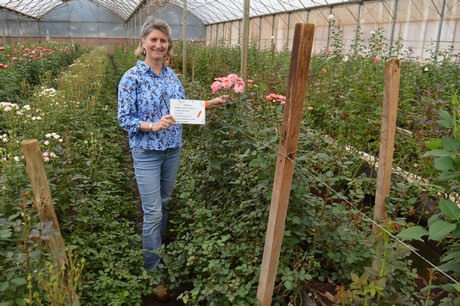
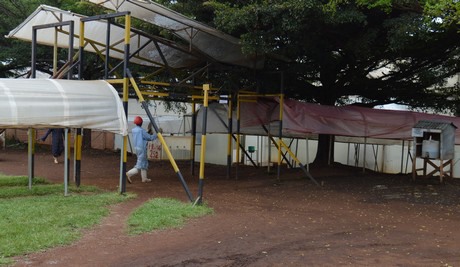
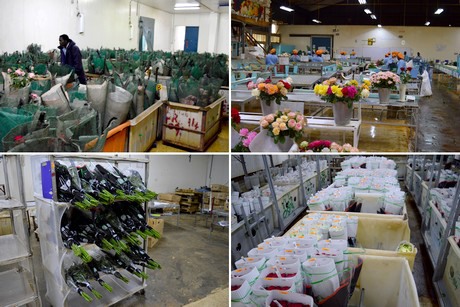
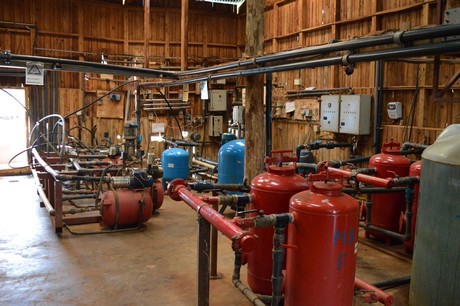
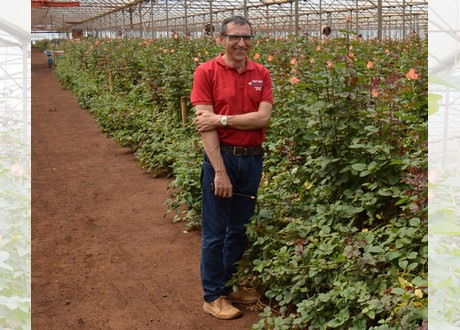
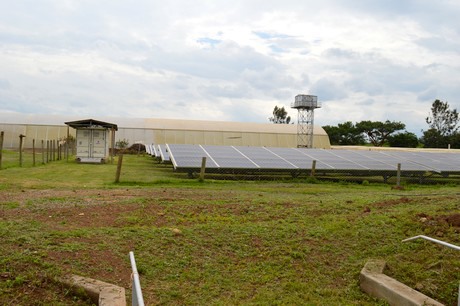
 Red Lands Roses
Red Lands Roses






 Red Lands Roses
Red Lands Roses